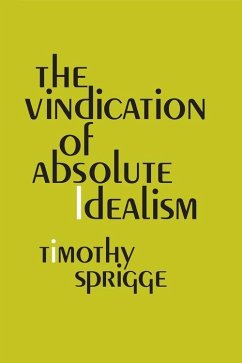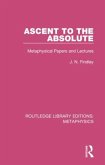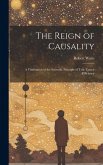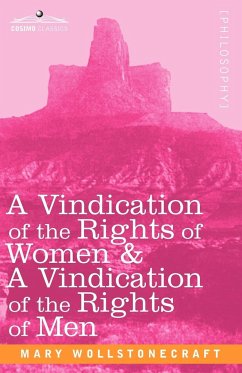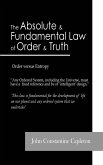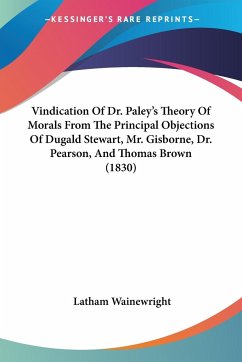'The philosophical community is indebted to T. L. S. Sprigge for single-handedly keeping alive the great tradition of absolute idealism. Although his courageous "I Did It My Way" approach to philosophy has won few converts, it has succeeded in stimulating fruitful discussion, as is amply attested to in this volume.' Richard M. Gale, Department of Philosophy, University of Pittsburgh When Timothy Sprigge's The Vindication of Absolute Idealism appeared in 1983 it ran very much against the grain of the dominant linguistic and analytic traditions of philosophy in Britain. The very title of this work was a challenge to those who believed that Absolute Idealism fell with the critiques of Bertrand Russell and G. E. Moore at the beginning of the 20th century. Sprigge, however, saw himself as providing an underrepresented position in the philosophical spectrum rather than as advocating an abandoned view. For him, idealism did not fall at any determinate point in the history of philosophy. The truth of any philosophical thesis cannot depend on what happens to be currently fashionable, but rather must stand on the soundness of philosophical argument. To this end, The Vindication of Absolute Idealism is a bold statement of his conclusions, a synthesis of panpsychism and absolute idealism, which he contends is the most satisfactory solution to the question of the nature of consciousness and the mind-body problem. Sprigge's view of consciousness remains a challenge to mainstream physicalism and a viable option that addresses pressing contemporary concerns not only in metaphysics and philosophy of mind but also in environmental ethics and animal rights. Timothy L. S. Sprigge (1932-2007) was Regius Professor of Logic and Metaphysics at the University of Edinburgh and Fellow of the Royal Society of Edinburgh. In addition to his magnum opus, The Vindication of Absolute Idealism, his books include Facts, Words and Beliefs (1970), Santayana:
Hinweis: Dieser Artikel kann nur an eine deutsche Lieferadresse ausgeliefert werden.
Hinweis: Dieser Artikel kann nur an eine deutsche Lieferadresse ausgeliefert werden.

